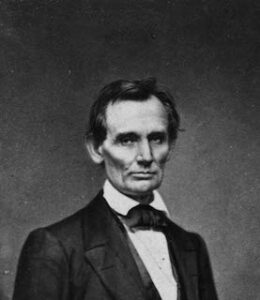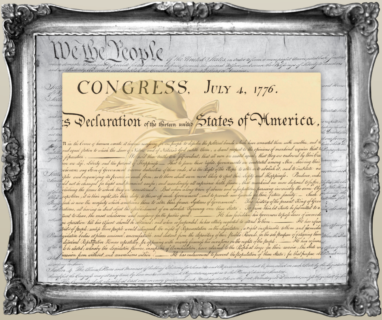
Debating Lincoln’s Leadership
A conversation with Joseph Fornieri and David Tucker, Continued
This is the second part of our edited interview of Joseph Fornieri and David Tucker, who collaborated to edit TAH’s new document collection, Abraham Lincoln. Last week Fornieri and Tucker discussed the value of Lincoln’s writing to those studying the meaning of the founding and its centrality in American political life. This week they discuss recent controversies over Lincoln’s purposes, and whether Lincoln’s views on abolition evolved or remained consistent.
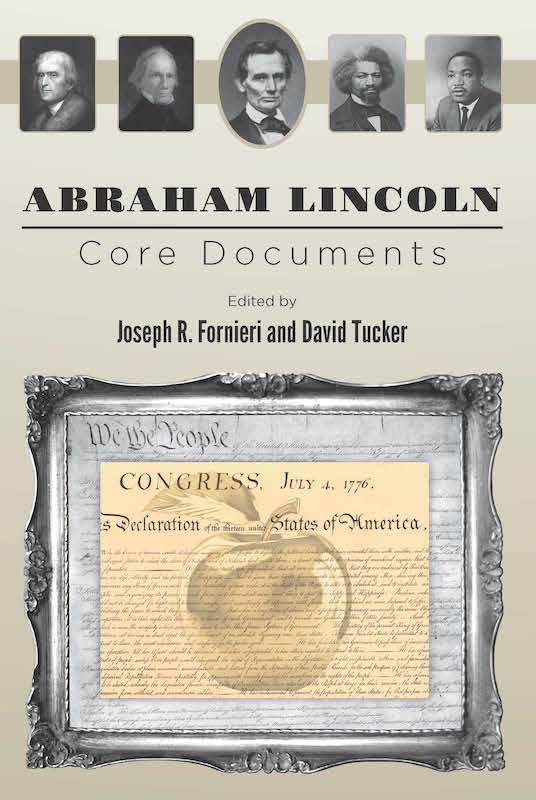
ET: You’ve discussed the many reasons today’s students can understand Lincoln and learn from him. Yet teachers also say Lincoln puzzles their students. After reading Lincoln, students reach varying conclusions about his actions as President. Some criticize him for delaying emancipation, accusing him of racism. Others conclude Lincoln’s views “evolved.” Do you see an evolution?
DT: I do not; he always opposed slavery. Some of those who criticize Lincoln for not immediately proclaiming emancipation refuse to recognize the constitutional limitations on the president’s power. Many assume the president can do anything—you’ll hear people say, why doesn’t the President do this or that? That wasn’t Lincoln’s view of presidential authority. He thought it contradictory to assert unconstitutional powers in order to preserve liberty; he would have undermined liberty by asserting those powers. He always wanted to deal with slavery in a way that was strictly constitutional and legal. During the war—obviously not a normal constitutional situation—he used his authority as commander in chief to declare emancipation. His sentiments didn’t change. What changed were the circumstances in which he found himself.
JF: I agree. Lincoln was anti-slavery in principle from beginning to end. Some seem to minimize the challenges of creating a multiracial society in which the freedmen had voting rights and were integrated into all areas of society. Lincoln realized this would take time. Principle has to be tempered not only by the consideration of constitutional limitations, but also by political and societal limitations, mores. In 1854, in Peoria, Lincoln distinguished between the extension of slavery and the existing institution in the southern states. While he’s clear that slavery is wrong, he had no authority to interfere with the existing institution. He hoped that it would be abolished, proposing colonization of the freedmen. But in the same speech he raised questions about the practicality of colonization. In proposing it, he seems to be accommodating the prejudices of his audience, who were willing to oppose slavery but not willing to go so far as to embrace an interracial society. And in fact, the advocacy of black civil rights in the state of Illinois at this moment would have played into the hands of the popular sovereigntists. Stephen Douglas had race-baited Lincoln and stoked fears that Lincoln would make the state of Illinois “a black colony.” Illinois was one of the most racist “free states”: it actually had a black exclusion law that prohibited free blacks from entering the state. Moreover, Lincoln’s own state legislature condemned the Emancipation Proclamation! Today we see citizenship, suffrage and integration necessarily following emancipation. But that didn’t happen overnight. During Reconstruction, the federal government had to intervene to protect the civil rights of blacks.
Early in his presidency Lincoln spoke again of colonizing freedmen somewhere outside of North America. He advertised his interest in colonization right before issuing the Emancipation Proclamation, in a speech to a group of African American leaders he invited to his office—
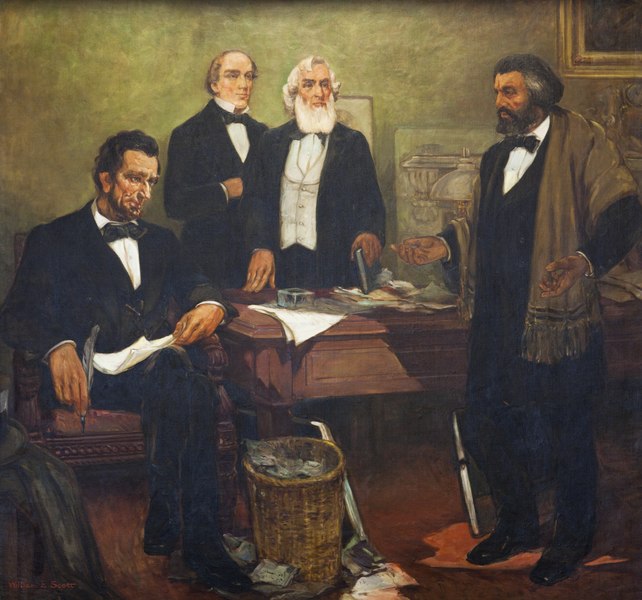
ET: That incident is notorious, isn’t it?
JF: That’s why Dave and I wanted to include it in this volume. James Oakes points out that this is one of the only times Lincoln invited reporters to a private meeting. He suggests that Lincoln was speaking not to the black leaders in the room, but to the white audience beyond. Black leaders, including Frederick Douglass, were none too pleased. But then Lincoln dropped the idea. Once blacks served in the army, he saw this as establishing a path to citizenship. He supported black citizenship and limited black suffrage in the last speech of his life. Is this an evolution? I see it as a logical extension of his early anti-slavery views.
DT: But it’s also true that Lincoln, like Jefferson, believed that it would be very difficult for blacks and whites to live together, due to white prejudice and black resentment of their unjust treatment. Our history shows there is truth in that. There has been a lot of mutual suspicion. I think we ought to be a little more charitable to Lincoln and Jefferson for being frank about the problems that a multi-racial society presents.
Joe’s mention of the opposition of the Illinois legislature to emancipation brings up one of our aims in all the CDC volumes. We try in the introductions to provide background to the document without over-interpreting it, because we want readers to struggle with these questions the way we do. With regard to the colonization speech, I think Joe did a good job in that introduction of presenting the background without dictating a particular interpretation of it.
JF: After reading Lincoln for 25 years, I have an opinion, but it’s not dogmatic. Human beings are complicated. You can find many different Lincolns in the biographies: the reluctant emancipator who was forced into glory; the great centralizer, according to Thomas DiLorenzo; the cunning pragmatist; the utopian millenarian waging a holy crusade against the South. People really come to Lincoln through their own lens.
Part of the difficulty was Lincoln himself. If you look at the letter to Horace Greeley, there is deliberate equivocation when he says, “My paramount object in this struggle is to preserve the Union. And what I do about slavery is subordinate to that goal.”
DT: He does add a comment about his personal wish; but in speaking as the president, his primary obligation is the union.
JT: I would go further and say that for Lincoln, preserving the Union means preserving the principles of universal freedom for everyone. Dave, you mentioned in your introduction to the Conkling letter that Lincoln’s rhetoric aims at building a broader coalition. He wants to get the war Democrats who disliked the Emancipation Proclamation to understand why he issued it, and to support him in the coming election.
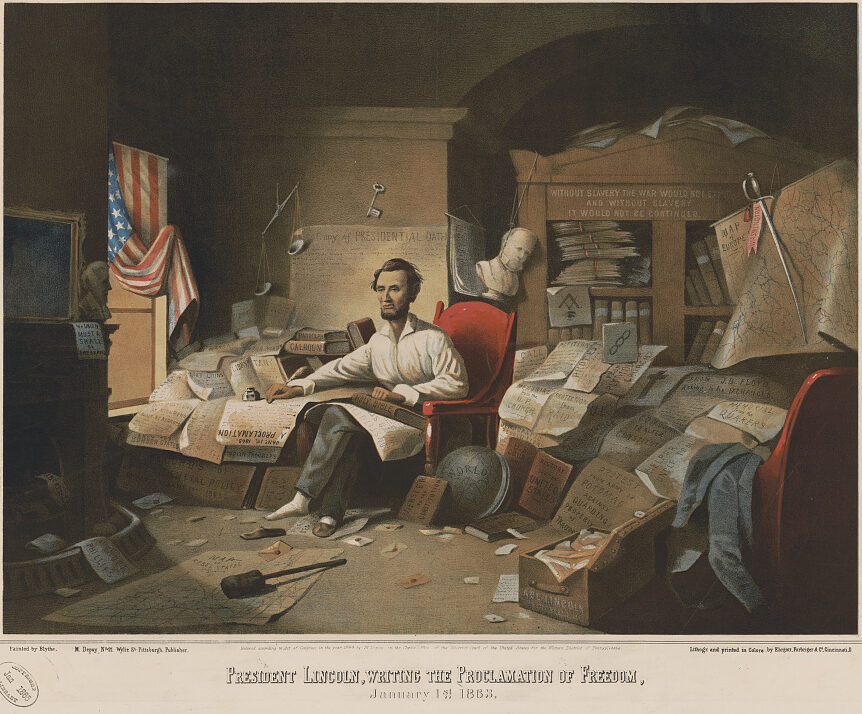
DT: Lincoln’s primary purpose was to preserve political freedom. Slavery is a direct contradiction of political freedom. But Lincoln pointed out, as others did, that it was slowly destroying the freedom of white people. Southerners were suppressing speech, prohibiting the use of the mails to transmit abolitionist ideas.
JT: The South argued that abolitionist speech was offensive, violent and subversive. They wanted to censor it to protect their identity, dignity and way of life. But free speech, as Frederick Douglass said, is the weapon that enables the forces of freedom to burst the chains of oppression.
DT: Ultimately, political freedom derives from human equality. But you can’t pursue equality in such a way as to undermine political freedom, because then you’re contradicting yourself. So that tension between equality and liberty, between equality and the rule of law—that’s what Lincoln dealt with throughout his career.
It’s extraordinary how he was able to work through the institutions and the prejudices of people around him and achieve what he did.
ET: Still, if you argue Lincoln was consistent, can you say he was consistently frank?—for example, in the First Inaugural, when he invites the South to come back in and says he won’t interfere with their peculiar institution? Or when he writes to Alexander Stephens, giving the same assurance, but adding “surely the only difference between us is that you think slavery is right, and we think it is wrong”—couldn’t the South see through that?
JF: I always laugh when I read that quote. That’s a big difference!
DT: But I don’t think that Lincoln would have precipitated the Civil War the way the South did. The South could have said, Okay, we’ll drop our secession plans if we all agree that slavery will persist another couple hundred years before eventually disappearing. People have debated whether slavery was an economic system that could have survived. I’m no authority, but perhaps it could have. Even if you accept the view that slavery was an economically and socially backward system, people could have clung to it, simply because they liked having slaves. I think it’s fortunate that the Civil War, terrible as it was, occurred to end slavery. Lincoln, of course, hoped the war would end more quickly. In the first several years of his presidency, he floated the idea of compensated emancipation in the border states. He was trying to think of nonviolent ways to deal with the problem.
ET: But he could not convince slaveholders to take the deal.
Before we close, would each of you talk about one document in the collection that is particularly important to you?
DT: I think the Fragment on the Constitution and Union offers the key to understanding everything about Lincoln and the Civil War and his approach to these problems. That’s why we made an image of it for the cover of the volume. It explains why, ultimately, he was right in trying to mediate between these extremes of the slaveholders and the abolitionists.
JF: You could say that Stephen Douglas wanted the picture of silver without the apple of gold. The abolitionists, in effect, as Lincoln warned in the Temperance Address, wanted the apple of gold without the picture of silver.
ET: Why did Lincoln never use that image in any of his speeches?
JF: It’s one of many gems that were later discovered—notes to himself Lincoln wrote down on scrap paper, then put away in his desk or his hat. His secretaries found this treasure trove of notes after he died, some of which he’d already incorporated into speeches. For example, the “Meditation on the Divine Will” seems to prefigure what he says in the Second Inaugural Address.
DT: I don’t know why Lincoln never used the Fragment. It was occasioned, we think, by the letter Alexander Stephens wrote to him in December 1860. Stephens, quoting Proverbs 25:11, asked Lincoln to offer “a word fitly spoken” to calm sectarian tensions (ironic, since Stephens would soon deliver the Cornerstone Speech, one of the most intemperate and provocative pre-war speeches). It could be Lincoln was trying out ideas for his First Inaugural Address, but then decided he needed a more legalistic and restrained statement. That address was so restrained that Seward urged he give it a more inspiring ending. He and Lincoln collaborated to write that beautiful reference to the “mystic chords of memory” and so on.
JF: My favorite document is the Peoria Address. We talk a lot today about “interdisciplinarity.” The Peoria Address integrates the historical case against slavery with an appeal to morality and legal precedent. It really follows Aristotle and Cicero’s rhetorical format: a strong appeal to ethos at the beginning, then to logos, then to pathos. It’s philosophical in its probing of human nature, logical in wrestling with the political realities of the time. It touches our intuitive awareness that slavery is wrong. Lincoln subsequently would recycle, in the Lincoln-Douglas debates, many of the arguments from Peoria, even quoting extensively from it. It’s written in 1854, well before his Senate and presidential campaigns. Here he first discusses the Constitution. explaining that while the founders thought tolerating slavery a necessity, they did not endorse it. Quite the contrary. Lincoln likened slavery to a cancer. Once the viability of the fledgling country was assured, the cancer had to be cut out.

